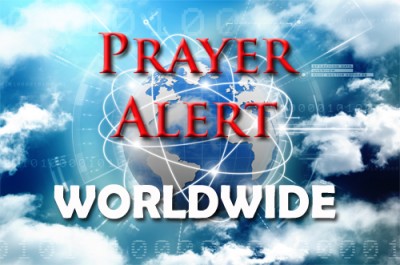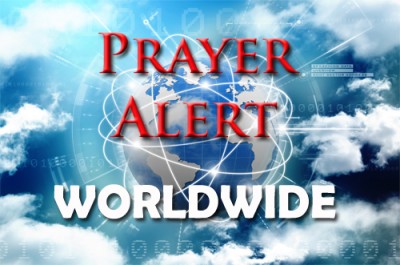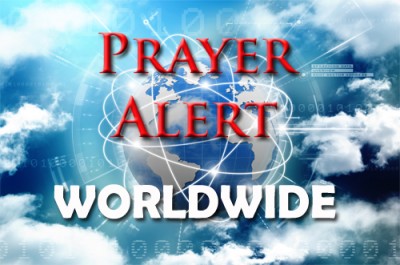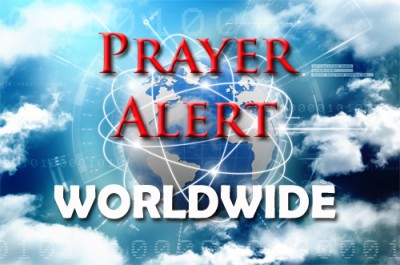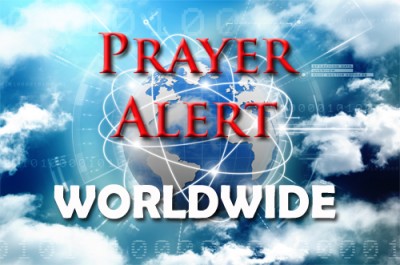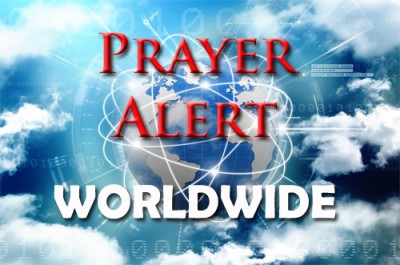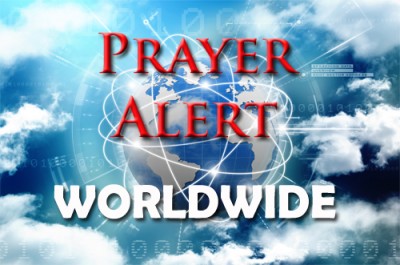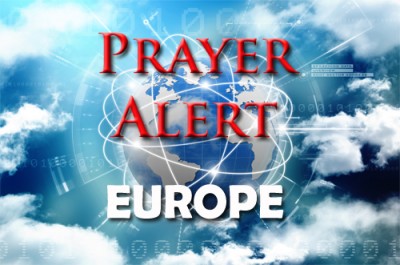Nigeria: Ethnic cleansing in the south
21 Jul 2016200+ people have been killed in almost daily attacks in the northern and north-eastern regions since 30 June by Boko Haram. But lesser reported violence rages farther south, claiming thousands of Christian lives. Militants among the ethnic Fulani, a predominantly Muslim and nomadic population of cattle herders, are suspected of killing Christians in the states of Plateau and Taraba in recent months. The two states form the eastern end of Nigeria's ‘Middle Belt’ (states straddling the pre-colonial line dividing Nigeria's Muslim north from its Christian south) and the most recent violence resulted from 500 Fulani cattle disappearing with suspicion falling on the Berom, an indigenous Christian population. Fulani raiding parties killed 30+ people, including a pastor of the Church of Christ in Nigeria. Cattle rustling and land disputes provide a pretext for the violence across the Middle Belt. For a report on Non-Boko Haram violence against Christians in the Middle Belt region of Nigeria go to: http://theanalytical.org/wp-content/uploads/2015/04/Migration-and-Violent-Conflict-in-Divided-Societies-March-2015.pdf
South Sudan update: Violence and looting
21 Jul 2016Clashes between government and opposition forces have killed hundreds, casting doubt over whether the transitional government can survive. Burned tanks line the side of the main road leading past the UN base in Juba. Homes and market stalls have been ransacked. Dark spots in the dirt suggested where bodies had lain, the smell of death lingers. Violence started on 8 July, killing hundreds and shattering hopes that the transitional government could bring peace after two years of conflict. Although fighting subsided after a one-sided ceasefire on 11 July, civilians fear for their lives as they navigate the many checkpoints along the road manned by unruly, trigger-happy soldiers. The hunt for food drives South Sudanese across border to Sudan. Many have sought shelter around St Theresa’s cathedral, sleeping in schools at night and congregating at the church during the day to get aid.
Former Secretary of State Condoleezza Rice issued a powerful prayer asking God to bring peace and healing to the USA amid nationwide pain, anger and uncertainty following the violence in Minnesota, Baton Rouge, Dallas and in cities and countries around the world. She asked for protection for law enforcers and branches of the military and asked God to forgive the US for its ‘dark past’ of slavery and prejudice. Rice, a member of Menlo Park Presbyterian Church, led the congregation in prayer during a special service held to commemorate those recently slain. ‘Oh, dear Father, we come to you with heavy hearts. We come to you with confused minds, we come to you with sinking spirits. But we come to you knowing that we can always count on you. We are so grateful to have a friend in you to whom we can bring all of our concerns, all of our trials and tribulations. And we do that now.’ For the full prayer click the ‘More’ link.
Pray for UPRISING 2016 - Seoul, South Korea
21 Jul 2016Thousands of Christians from around the world will be gathering at United Prayer Rising in Seoul, South Korea this coming week - between 26th and 29th July. The UPRISING planning team believes that God is setting-up a globally-connected, digital, radical generation whose passion is to seek His face, for such a time as this. They only need to be gathered, challenged, and released to their destiny. UPRISING will not be just another event; it will be a historic, strategic convergence of youth and children from across the world that will be used of the Lord to catalyse an ever-building wave, releasing His glory in the nations. God has always called and used young people to do exploits for Him in both Scripture and history. The delegates, many of whom will be from the younger generations, and many in leadership already, will be meeting for three days of teaching, prayer and praise, with significant time for reflection and hearing from God. Friday 29th, there will be an estimated 12,000 people taking part in a day of worship, prayer and fasting, at the Nuri Peace Park, which is located close to the de-militarised zone.
Israel: Hamas opens summer terror-training camps
21 Jul 2016While most children attending summer camps learn healthy extracurricular activities, last Saturday 30,000 youth in Gaza began attending terror-training camps organised by Hamas’ military wing, (Ezzedeen Al Qassam Brigades). Hamas has been running these camps since 2007. The experience aims to promote Hamas’ ideology and encourage them to participate in actual military operations. The Islamic Jihad offers a similar experience. This year’s camps are called ‘Talae Al Tahrir’ (Vanguards of Liberation). Photos released from the first day of camp by Hamas showed youth undergoing military training. ‘We prepare the Palestinian generations so that they will be fully prepared for defending Palestinian soil and the Palestinian people,’ a Hamas’ statement read. These annual summer events include weapons and explosives training, instruction in the techniques behind kidnappings and terror attacks and terror indoctrination. The ultimate objective of these camps is training, indoctrination and for the youth to act as an auxiliary force in any future confrontation with Israel.
Turkey: Pray Today
21 Jul 2016Pray for Christian Believers worldwide to realise the awesome power we have in prayer. Pray that Turkey will not become an Islamic nation. Pray that the draft and final constitution will guarantee that Turkey will continue to be a secular government (2 Cor.10:3-6 ). Pray for fair-minded judges to be reinstated, for our God loves justice (Lev.19:15 & Amos 5:24). Pray for fair and just inquiries and trials for those arrested in the recent attempted coup (Deut.19:15). Pray for Christian Believers in Turkey to be bold in their witness to others as they explain the hope they have in Jesus Christ (1 Pt.3: 15-16); and for Turkish Christians to follow the admonition in 2 Ch.7:14 and thus mobilise a massive amount of prayer. May they cry out day and night for God's intervention for their nation.
Turkey: Global Wave of Prayer for Turkey
21 Jul 2016Now that the immediate threat from the attempted coup has subsided things are moving very quickly. Actions and decisions made over the next few days have the potential to significantly impact the future pattern and fabric of Turkish society significantly. International Turkey Network is calling everyone to join in an intense period of global prayer for Turkey. The government is reasserting its control and the mood has moved from one of unity against the attempted coup to one where old factions are again looking to protect or entrench their positions. Many are still on the streets where passions and emotions are running high, not all actions are well judged or positive. Media reports crowds crying ‘Allahu Akbar’ with occasions of violence. Thousands of judges and prosecutors have been arrested and similar numbers the police and military in a ‘purge’. Turkish people are cautious what they report. There have been isolated reports of some church properties being damaged by crowds.
France's foreign minister, Jean-Marc Ayrault, warned Turkish President Erdogan against using the country's failed coup as ‘carte blanche ’. ‘We want the rule of law to work properly in Turkey,’ adding that Turkey's government should not use repressive measures. His remarks came as Turkish authorities continued a crackdown in the wake of the coup, arresting thousands of people accused of involvement in the putsch or of supporting the plotters. Ayrault’s remarks echoed those made by President François Hollande, who said he expected a period of repression in Turkey after Friday's turmoil. ‘Now we shall see what the situation is in Turkey, if its president has completely regained control, which I think is the case. France hopes that Turkish democracy will emerge reinforced by this test and that fundamental liberties will be fully respected.’ said Hollande.
